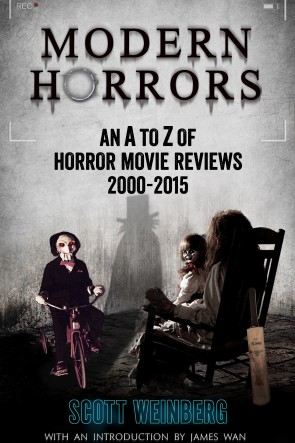Review: TUSK (2014){0}
He Is The Walrus
Note: if you already know the story behind Kevin Smith’s Tusk, skip the first two paragraphs.
Here’s a story you couldn’t make up: in June 2013, in the course of recording his 259th podcast (or ‘SMODcast’, as he and co-podcaster Scott Mosier call them), filmmaker Kevin Smith came across an ad in Gumtree offering a room to let, rent free, to a lodger willing to wear a walrus suit for two hours a day, “catching and eating the fish and crabs that I will occasionally throw to you whilst you are being the walrus.”
The ad (subsequently revealed as the work of hobbyist hoaxer Chris Parkinson) caused much mirth, but as the podcast progressed, Smith and Mosier began to see the possibilities of “a cuddlier version of The Human Centipede” in which someone “creates a subterranean dungeon that looks like a walrus enclave” and sews their hapless victim into a walrus suit. “I bet you we could Kickstart that and make a bunch of money.” At the end of the podcast, Smith proposed two hashtags to grow the conversation on Twitter, #WalrusYes (for “I’d totally watch that movie!” and #WalrusNo (“for people who don’t want it”). By the following day, thanks to the miracle of social media (and Smith’s fan base juggernaut), there were enough #WalrusYes votes to seal the deal. The Walrus and the Carpenter – or Tusk, as it would come to be called – would become an actual film, the first based on an original podcast.
So can the film possibly live up to the absurdity of its origin? The answer, astoundingly, is yes. Okay, so Smith wanted John Cusack or James Franco in the role of the victim, and had to make do with Justin Long, but the rest of the film is remarkably faithful to the ideas thrown around during SMODcast #259. Wallace (Long) and his friend Teddy (The Sixth Sense‘s Haley Joel Osment) host a podcast with the toe-curling title ‘The Not-See Party’, in which Wallace travels around the country investigating “weird-ass shit.” It’s one such investigation – initially leading to a literal dead end in Manitoba, Canada – which leads Wallace to the ‘room to let’ advertisement from former sailor Howard Howe (Michael Parks, so chilling in Smith’s earlier horror film, Red State), a more or less word-for-word copy of Parkinson’s original Gumtree ad. Driving out to Mr Howe’s remote home, Wallace listens in amazement as Howe regales him with stories of his seafaring adventures (revealing, in the process, some of Smith’s best writing), including a classic anecdote about Ernest Hemingway (or “Ernie” as Howe affects to call him.) But then Wallace begins to feel woozy… and when he comes to the next day, his physical transformation has begun.
To say more would spoil some of the film’s biggest surprises – including an A-list star, instantly recognizable despite being heavily disguised; suffice to say that from an absurd idea, Smith has succeeded in making a highly enjoyable black comedy that pulls off the rare trick of being gut-bustingly funny and stomach-churningly horrific. (How many films like that can you name?) With such a bizarro premise, it’s little short of a miracle that Smith managed to get the tone so right, and found ways to sustain the idea to feature length. As fresh as the work of a first-time filmmaker, Tusk is an instant cult classic, and proof that Red State was no fluke. I’m voting #WalrusYes.
★★★★
David Hughes (@DavidHughesTwit)
UPDATE: Listen to the original SMODcast here.










